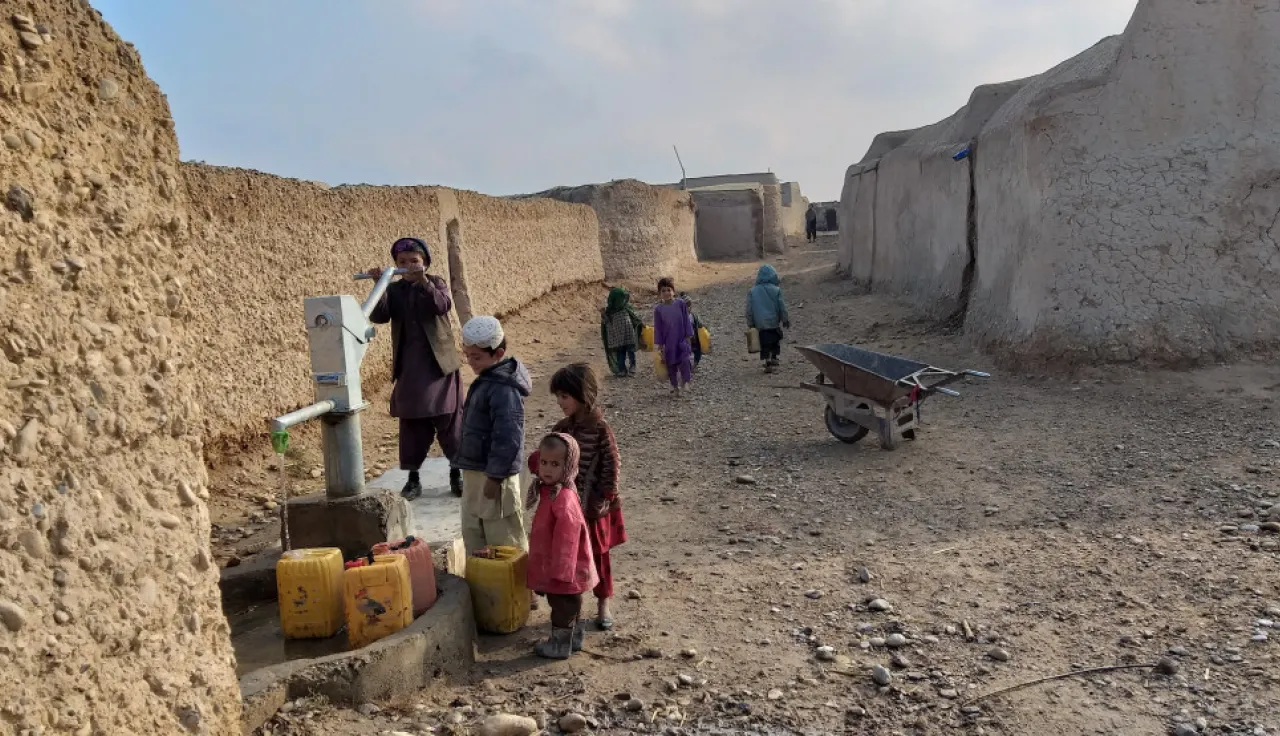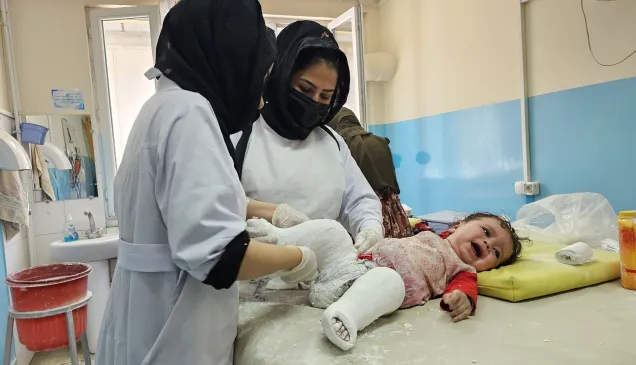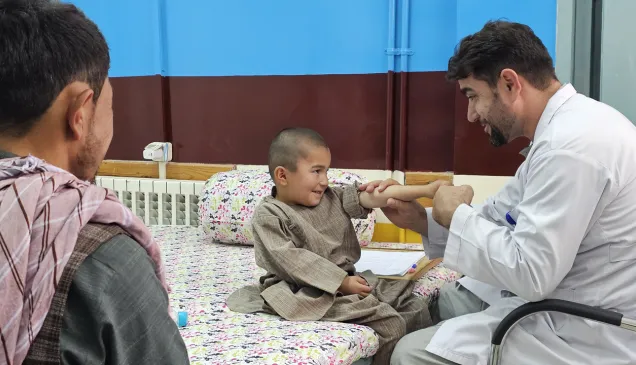Excellencies, Today, I would like to flag three areas in which such an approach is urgently needed.
1. Ensuring Basic Essential Services
As I mentioned before, humanitarian organizations cannot effectively replace a functioning public sector, nor can we fully meet the needs of the Afghan population. Relief is a necessary stopgap measure to save lives here and now.
Payment of salaries to non-security sector civil service employees to ensure provision of basic essential services is critical. This builds on the technical capacities already in place and holds the foundation for a sustainable future.
We and other humanitarian actors are ready to scale and replicate this model, including in other sectors.
2. Restrictive Measures
There has been welcome progress on some restrictive measures that create a more enabling environment for humanitarian response. For example, general licenses are available with wide allowance for humanitarian activities.
However, to meet the current needs of the Afghan people, clearer signals are needed on the acceptance of direct engagement with certain non-security sector government ministries in order to ensure basic essential services such as provision of healthcare, education, and water and sanitation.
And following the welcome and unanimous adoption of UNSC Resolution 2615, we encourage relevant States to continue to implement the carve-out in their domestic laws so that humanitarian actors can operate with confidence.
3. The Banking and Liquidity Crisis
The banking and liquidity crisis is having a devasting effect on the overall economy and on the ability of humanitarian agencies to scale their activities efficiently. 'Piece meal' solutions are not enough, and collaborating with IEA technical counterparts, particularly in the Ministry of Finance and the Central Bank, is necessary.
The Afghan Central Bank (Da Afghanistan Bank) needs to be supported to carry out its core functions such as managing the money supply, conducting foreign exchange auctions, and regulating and supervising banks and other financial institutions.
Such support could come from multilateral financial institutions like the World Bank, IMF, or the Asian Development Bank, the Bank for International Settlements, or through reputable third parties.




